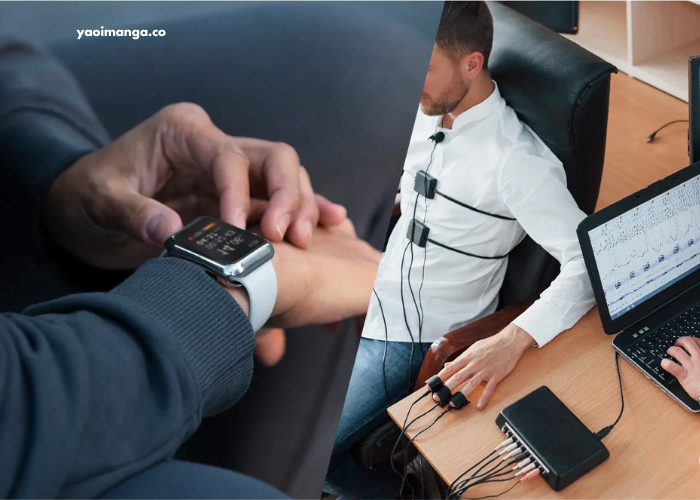In today’s fast-paced world, with constant advancements in technology and shifts in lifestyle, health monitoring has become more critical than ever before. With the increasing prevalence of chronic diseases, stress, and unhealthy living habits, monitoring one’s health offers a proactive approach to preventing and managing illnesses. The significance of health monitoring spans beyond just checking vital signs; it encompasses tracking various aspects of wellness, including physical activity, sleep, nutrition, and mental well-being. This article explores the various facets of health monitoring, highlighting its importance in the modern age and how it can significantly improve the quality of life.
What Is Health Monitoring?
Health monitoring involves the continuous observation of one’s physical and mental well-being through a variety of tools and technologies. Traditionally, health monitoring was restricted to visits to medical professionals, where essential metrics such as blood pressure, cholesterol levels, and body weight were measured. However, with the advent of wearable devices, smartphones, and health apps, individuals can now track these metrics on a day-to-day basis, providing real-time insights into their health status.
Monitoring can encompass a wide array of activities, including:
- Tracking heart rate and blood pressure
- Measuring physical activity and calories burned
- Monitoring sleep patterns
- Assessing dietary intake
- Measuring blood glucose levels (for diabetics)
- Tracking mental health with mood and stress levels
This data is invaluable, enabling individuals to make informed decisions about their health, catch early signs of potential issues, and seek timely medical interventions when necessary.
The Role of Technology in Modern Health Monitoring
H3: Wearable Devices and Fitness Trackers
In the modern age, technology has revolutionized health monitoring. Wearable devices, such as fitness trackers, smartwatches, and health apps, have become increasingly popular, helping individuals keep tabs on their health without frequent trips to the doctor. These devices provide real-time data, from steps taken to heart rate, sleep quality, and stress levels. Popular devices like the Apple Watch, Fitbit, and Garmin offer users personalized feedback based on their daily activities and health metrics.
Such tools empower individuals by offering them insights that were previously only available to healthcare professionals. This has made self-management of health not only possible but practical. For instance, an individual using a fitness tracker can immediately detect irregularities in their heart rate, enabling them to seek medical attention promptly, potentially saving their life in case of an emergency.
H3: Health Apps and Mobile Technology
Alongside wearable devices, mobile health applications (health apps) have taken the lead in providing users with valuable information about their well-being. Apps such as MyFitnessPal, Strava, and Sleep Cycle allow users to monitor diet, physical activity, sleep quality, and other health metrics.
Health apps also allow for customization, enabling individuals to set goals, track progress, and receive reminders for health-related tasks, such as drinking water, taking medication, or exercising. With the proliferation of smartphones, health apps have become accessible to nearly everyone, making it easier to track health and well-being on the go.
Key Benefits of Health Monitoring
H3: Preventive Health Care
One of the most significant advantages of health monitoring is its role in preventive health care. The ability to track health data consistently enables individuals to spot patterns, detect abnormalities, and take preventive measures before health problems become serious. For instance, high blood pressure or irregular heartbeats can often go unnoticed until they lead to more severe complications like heart disease or stroke. By monitoring these metrics regularly, individuals can intervene early, reducing the risk of complications and ultimately improving their quality of life.
H3: Chronic Disease Management
For individuals living with chronic conditions such as diabetes, hypertension, or asthma, health monitoring is a critical aspect of managing these conditions effectively. Continuous tracking of key health indicators allows for real-time adjustments in treatment plans. For example, a diabetic individual using a glucose monitor can track their blood sugar levels and adjust their diet or medication accordingly. Regular monitoring helps prevent complications, such as diabetic neuropathy or cardiovascular diseases, by ensuring the disease is kept under control.
Furthermore, smart devices that track medication adherence can remind users to take their prescribed medication on time, helping to ensure better disease management and preventing the occurrence of avoidable health problems.
H3: Encouraging Healthier Habits
Health monitoring encourages individuals to be more mindful of their lifestyle choices. With constant feedback on their activity levels, diet, and sleep patterns, individuals are motivated to adopt healthier habits. Many fitness trackers, for instance, offer daily step goals and remind users to stay active throughout the day, helping to counteract the sedentary lifestyle that has become prevalent in modern society.
Additionally, monitoring sleep patterns can help individuals realize the impact of poor sleep hygiene on their overall well-being. By tracking their sleep data, people can adjust their habits, such as setting consistent bedtimes or limiting screen time before bed, to improve their rest.
H3: Mental Health Awareness
Another important aspect of modern health monitoring is mental health. Many wearable devices and apps now include features that monitor mental well-being by tracking stress levels, mood changes, and anxiety. Mental health is just as vital as physical health, and with the increasing stressors of modern life, it’s crucial to maintain a healthy mind.
By tracking stress or mood fluctuations, individuals can pinpoint triggers and take proactive steps to manage their mental health. This could involve relaxation techniques such as meditation, mindfulness, or seeking professional counseling when necessary. Health monitoring tools for mental well-being help normalize the conversation around mental health and provide individuals with resources to improve their psychological health.
The Impact of Health Monitoring on Healthcare Systems
H3: Reducing Healthcare Costs
Health monitoring also has a significant impact on the broader healthcare system. By emphasizing preventive care and early detection, health monitoring can reduce the financial burden on healthcare systems. Early interventions are typically more cost-effective than treating advanced stages of diseases, particularly chronic conditions. Additionally, with fewer emergency situations arising due to proactive management, hospitals and healthcare providers can allocate resources more efficiently, improving overall healthcare delivery.
H3: Telemedicine and Remote Monitoring
Telemedicine is another area in which health monitoring plays a pivotal role. With advancements in telecommunication technology, healthcare services are now accessible remotely. This has been particularly important in rural or underserved regions where access to healthcare professionals may be limited. Patients can track their health metrics at home and share the data with their doctors via telemedicine platforms. This allows for continuous monitoring and timely intervention without requiring patients to visit a healthcare facility regularly.
Additionally, wearable devices and health apps have facilitated remote patient monitoring, where healthcare providers can oversee patients’ conditions without them having to be physically present. This has proven to be an essential tool in managing chronic diseases, reducing hospital readmissions, and enhancing patient outcomes.
The Future of Health Monitoring
The future of health monitoring looks promising, with emerging technologies continually reshaping the landscape of personal healthcare. Here are a few trends that will likely define the future of health monitoring:
H3: Artificial Intelligence and Predictive Analytics
With the growing volume of health data being collected through wearables and apps, the next frontier in health monitoring lies in the integration of artificial intelligence (AI). AI and predictive analytics can analyze vast amounts of health data, offering insights and personalized recommendations. For example, AI can predict the likelihood of a person developing certain health conditions based on their genetic makeup, lifestyle, and health history, enabling preventive measures to be taken earlier.
H3: Biometric Sensors and Non-invasive Monitoring
The development of more advanced biometric sensors will enhance health monitoring capabilities. Future devices may offer even more precise and non-invasive methods for tracking a broader range of health indicators, such as blood oxygen levels, hydration status, or even blood sugar levels without the need for finger pricks. These innovations will make health monitoring even more convenient and accessible.
H3: Integration with Smart Homes
As the concept of the smart home continues to evolve, health monitoring systems are likely to be integrated into everyday living spaces. For example, sensors in the home could track air quality, detect falls, and monitor activity levels, seamlessly integrating health data with a person’s daily life. This would allow for constant, unobtrusive health tracking and the ability to respond to any changes in real-time.
Conclusion
Health monitoring has become an essential part of maintaining good health in the modern age. With the help of advanced technologies such as wearable devices, mobile apps, and remote healthcare services, individuals can actively manage their well-being. Health monitoring empowers individuals to make informed decisions about their health, detect early signs of illness, and adopt healthier habits.
As healthcare systems continue to evolve and technology advances further, the future of health monitoring promises even more innovative and integrated solutions. By embracing health monitoring in our daily lives, we take a proactive step toward achieving optimal health and well-being, ensuring a higher quality of life for years to come.





